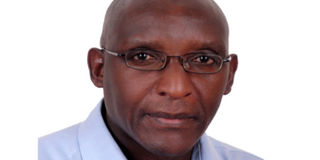Prime
Elections: Think about future of our youth

Okodan Akwap
Clearly, the Washington Consensus policies of the early 1990s, which prescribed for poor countries economic policies such as liberalisation, privatisation and deregulation, were never a blueprint for pulling the majority of Ugandans out of poverty. Many of our people are still stuck knee-deep in biting poverty.
The policies that supposedly would pull us out of the mud were never designed for us in the first place. They were agreed in Washington, DC by the World Bank, International Monetary Fund (IMF) and the US Treasury Department.
According to Prof Joseph Stiglitz, a former World Bank Chief Economist, the policies were agreed in response to Latin America’s economic problems of the 1980s. The major aim of those policies was to provide a formula for indebted Latin American countries to repay their debts.
Let us remember this as we reflect on the Thursday elections and the way forward after voting. The future of our country belongs to many of our people who were too young or were not even born when the Washington Consensus policies were hatched in America.
But, importantly, these young people have come of age and many will be participating in the elections for president, Members of Parliament as well as various local government leaders.
If you are a young or older voter, it is important to reflect deeply on how we have fared in terms of socio-economic development in the last 30 or so years.
If you do that, you might figure out – if you have not already done so – how a few people, especially foreign investors, have benefited hugely from the liberalised environment enthusiastically pushed by the World Bank and IMF.
That environment has made it pretty easy for foreigners to come in, take advantage of our cheaper factors of production such as land and labour, and easily take away chunks of wealth from our country in the guise of profits on foreign direct investment.
There is no question that the policies have worked for the few at the expense of the majority of Ugandans, especially the nearly 70 per cent of the population still stuck in subsistence agriculture in small rural gardens.
We have heard messages from presidential candidates as they traversed the country looking for votes.
We have listened to them tell us bits and pieces of what is contained in their party manifestos. Some of us may have even had a chance to read through the entire documents.
This is decision time. Let us opt for the person whose manifesto promises a truly inclusive economic growth formula for all Ugandans.
The United Nations Development Programme (UNDP) says economic growth is inclusive when it takes place in sectors such as agriculture, occurs in places where the poor live, uses the factors of production that the poor possess (such as unskilled labour) and reduces the prices of items that the poor consume, especially food, fuel and clothing.
One other thing we should think about deeply as we head to the polling stations across the country is patriotism. We should love our country, not because it is great, but because it is our home.
Here again is where we need to think about the oft-quoted line by the 35th American President, John Fitzgerald Kennedy, popularly known as JFK.
In his inaugural address on January 20, 1961 targeting the “new generation of Americans” JFK said: “Ask not what your country can do for you, ask what you can do for your country.”
We should also be thinking about how the person we vote for can target future generations of Ugandans to become key change agents in the largely sleeping countryside.
On our way to the polls, we must fill our minds with serious thoughts about the Uganda we want to leave for the young generations. We must be thinking of strengthening institutions of transparency and accountability.
We need to have Ugandans look at such institutions in the future and be filled with pride. Yes, we must shape a Uganda where our youth can, indeed, get an opportunity to dream about unlimited opportunities devoid of all forms of discrimination against them.
Vote for the man or woman you think can turn such a dream into reality.
Dr Akwap is the deputy vice chancellor for academic affairs at Kumi University. [email protected]




